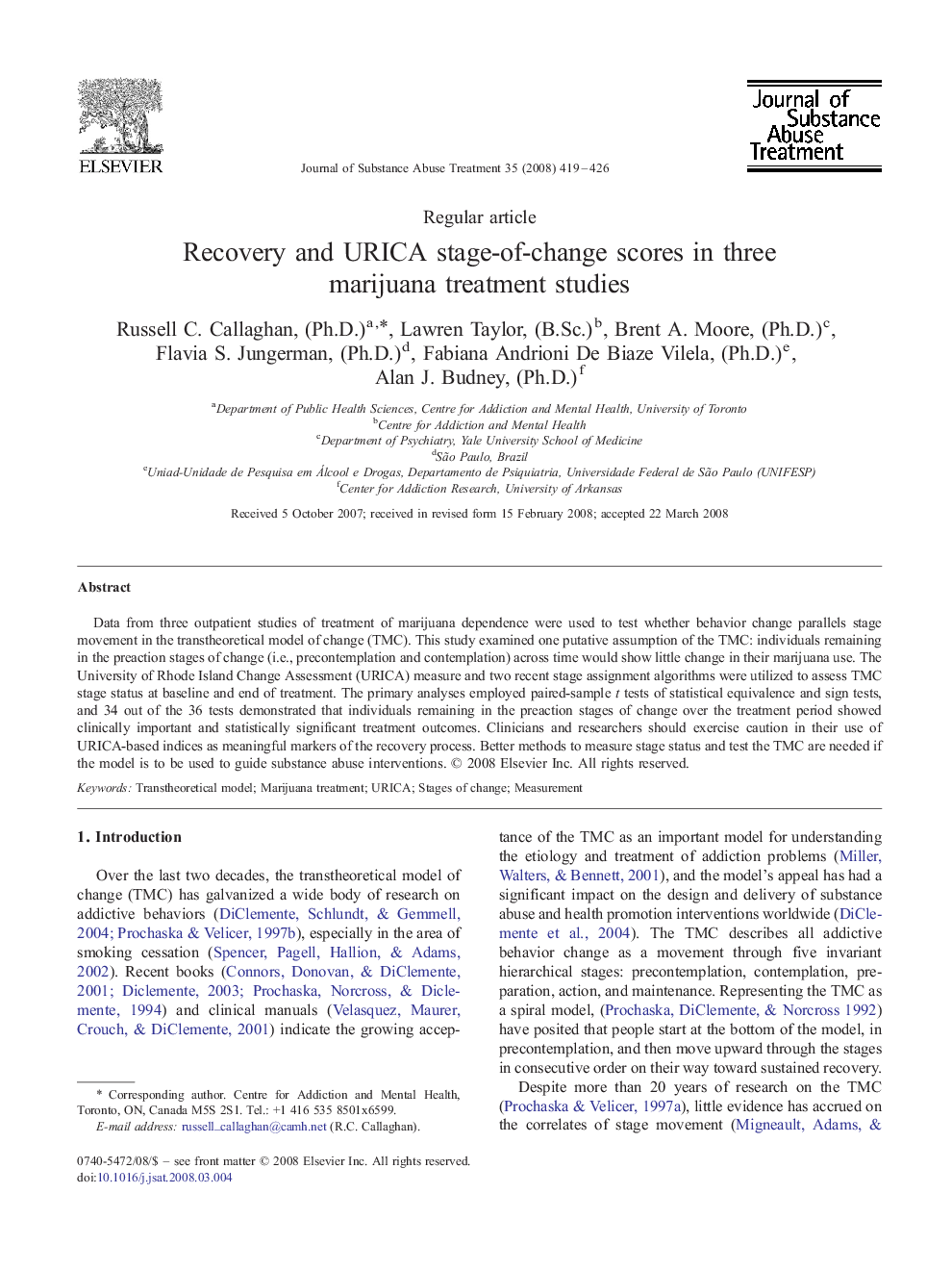| Article ID | Journal | Published Year | Pages | File Type |
|---|---|---|---|---|
| 328310 | Journal of Substance Abuse Treatment | 2008 | 8 Pages |
Data from three outpatient studies of treatment of marijuana dependence were used to test whether behavior change parallels stage movement in the transtheoretical model of change (TMC). This study examined one putative assumption of the TMC: individuals remaining in the preaction stages of change (i.e., precontemplation and contemplation) across time would show little change in their marijuana use. The University of Rhode Island Change Assessment (URICA) measure and two recent stage assignment algorithms were utilized to assess TMC stage status at baseline and end of treatment. The primary analyses employed paired-sample t tests of statistical equivalence and sign tests, and 34 out of the 36 tests demonstrated that individuals remaining in the preaction stages of change over the treatment period showed clinically important and statistically significant treatment outcomes. Clinicians and researchers should exercise caution in their use of URICA-based indices as meaningful markers of the recovery process. Better methods to measure stage status and test the TMC are needed if the model is to be used to guide substance abuse interventions.
